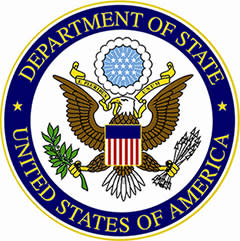State Department spent $630,000 on Facebook likes

A newly released report from the U.S. State Department reveals that the government agency spent approximately $630,000 on acquiring Facebook likes.
Jen Psaki, spokesperson for the State Department, addressed the concerns in a press conference on Wednesday morning. She explained the State Department is now spending far less on advertising. Whereas the department was spending $315,000 a year, it is now spending $36,000 a year, according to Paski.
"Online advertising has significantly decreased," Paski said. "It’s now at $2,500 a month, and that still allows us to reach out and communicate with a wide range of individuals living overseas."
The 57-page report, prepared by the State Department's inspector general, says the agency's spending resulted in an increase in the bureau's likes on the popular social network, going from around 100,000 to over 2 million within two years.
"The bureau spent about $630,000 on the two campaigns and succeeded in increasing the fans of the English Facebook pages from about 100,000 to more than 2 million for each page. Advertising also helped increase interest in the foreign language pages; by March 2013, they ranged from 68,000 to more than 450,000 fans."
"Many in the bureau criticize the advertising campaigns as 'buying fans' who may have once clicked on an ad or 'liked' a photo but have no real interest in the topic and have never engaged further," the inspector general reported.
Indeed, while the number of likes increased dramatically, the engagement did not. According to the report, just over 2 percent of the fans actively liked, shared or commented on an item within the previous week.
From the State Department report:
"Engagement on each posting varied, and most of that interaction was in the form of 'likes.' Many postings had fewer than 100 comments or shares; the most popular ones had several hundred."
So, basically, the State Department had a lot more fans for its series of sites, but those fans weren't exactly acting like fans. The report also mentioned that the effort to get more likes didn't connect with the "bureau's target audience, which is largely older and more influential than the people liking its pages," according to the Washington Examiner.
But, the inspector general wrote, engagement might not be the answer.
"The bureau could reduce spending and increase strategic impact by focusing its advertising not on raising overall fan numbers or general engagement statistics but on accomplishing specific PD [public diplomacy] goals."
Things got worse once Facebook changed the way it handles users' news feeds, according to the report.
"In September 2012, Facebook changed the way it displays items in its users’ news feeds. If a user does not interact with a site’s postings, after a time these postings will no longer appear in the user’s news feed unless the site buys sponsored story ads to ensure their appearance. This change sharply reduced the value of having large numbers of marginally interested fans and means that IIP [Bureau of International Information Programs] must continually spend money on sponsored story ads or else its 'reach' statistics will plummet."

